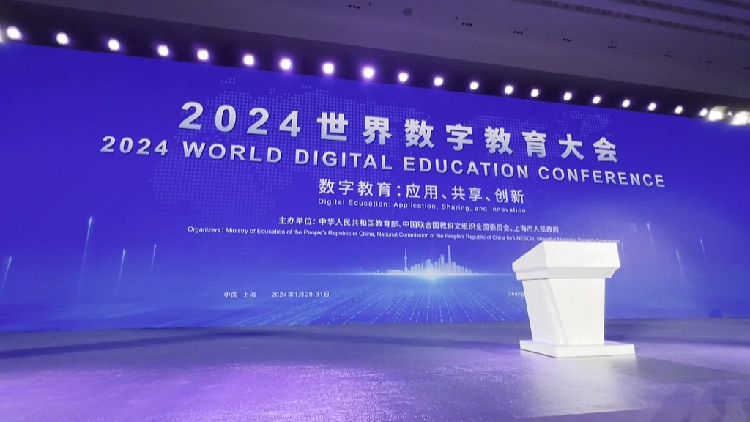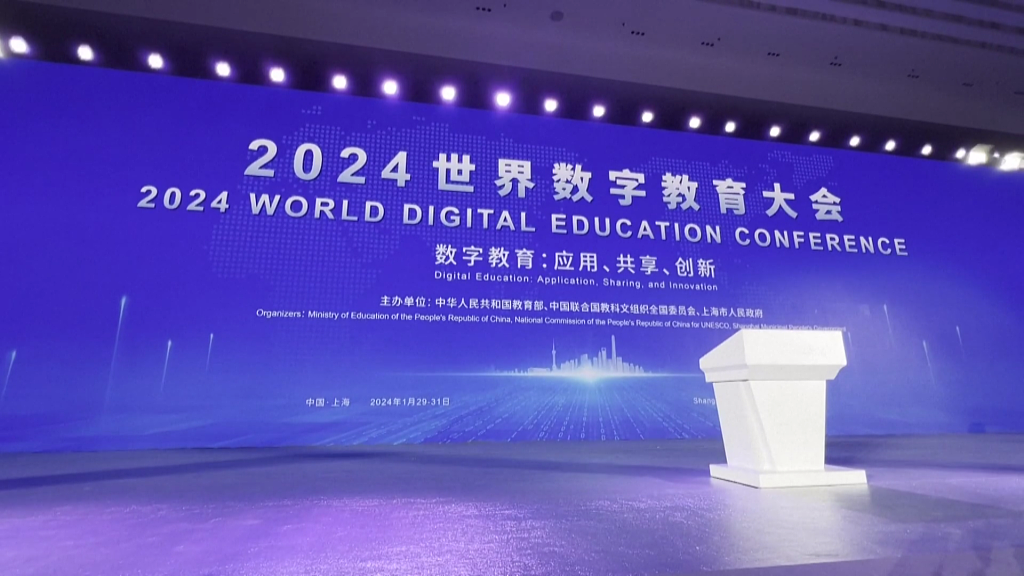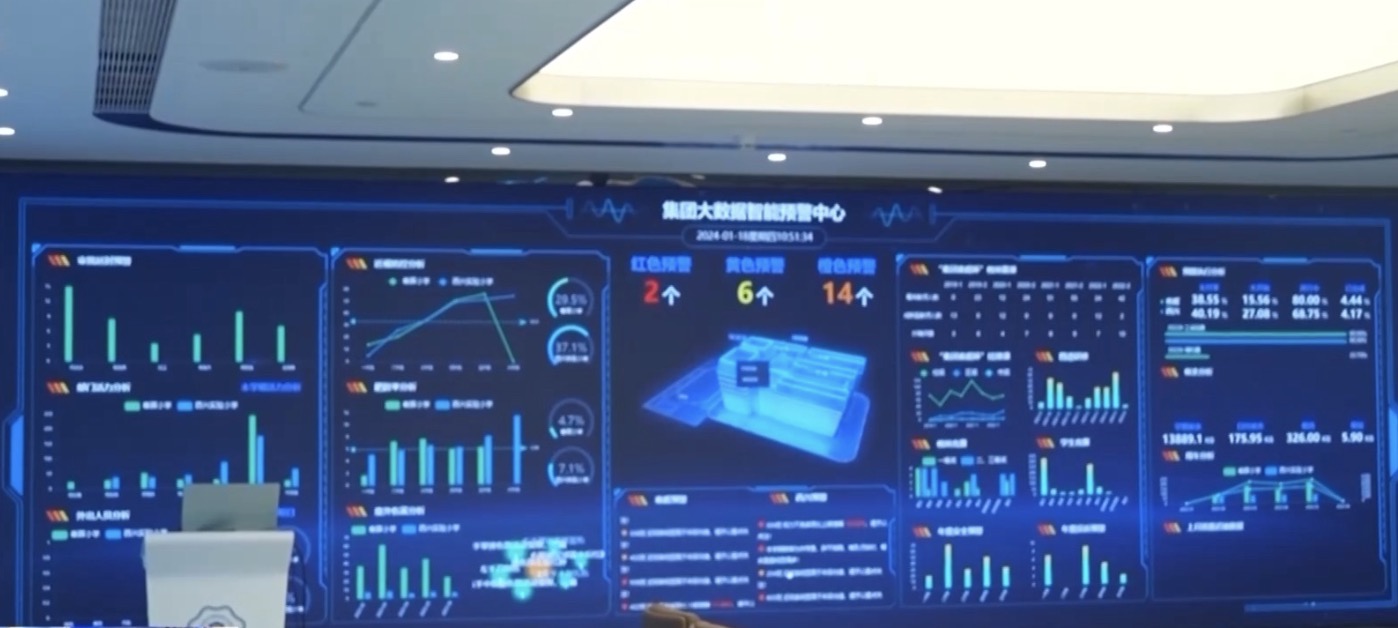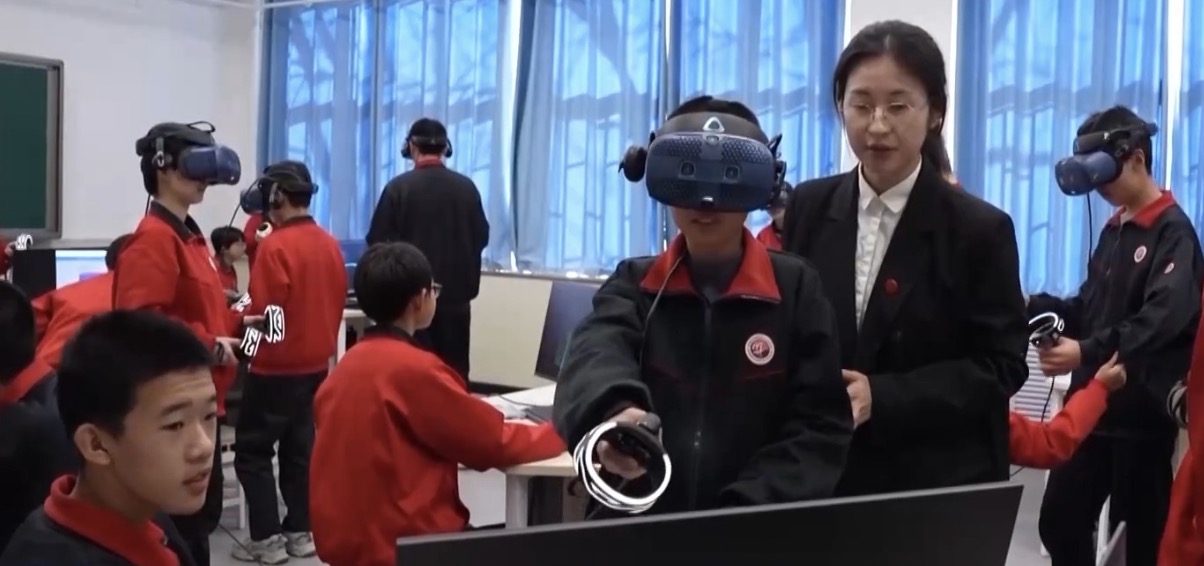AI revolution: 2024 World Digital Education Conference opens in China
The 2024 World Digital Education Conference (WDEC) kicked off in Shanghai, China on Monday, marking a significant milestone in the global artificial intelligence (AI) revolution's impact on education.


The 2024 World Digital Education Conference (WDEC) kicked off in Shanghai, China on Monday, marking a significant milestone in the global artificial intelligence (AI) revolution's impact on education.
Co-hosted by China's Ministry of Education, the Chinese National Commission for UNESCO and Shanghai Municipal People's Government, the 2024 WDEC is the second edition of the conference as the first one was held in Beijing last February.
With the theme "Digital education: Application, Sharing and Innovation," the three-day event brings together over 400 educators, policymakers, and tech leaders from more than 70 countries.
Focusing on the application, sharing and innovation of digital education, multiple parallel sessions will be held during the conference to discuss topics including teachers' digital literacy and competence, AI and digital ethics, as well as digital education assessment.
An alliance of world digital education will be established during the conference, said Liu Jin, director of the ministry's Department of International Cooperation and Exchanges.
The Digital and Smart Education Future Exhibition is also scheduled during the conference, featuring subjects such as digital transformation and smart education equipment, Liu added.
The international edition of the Smart Education of China, an online platform of education resources, will also be launched.
Zhou Dawang, director of the Department of Science, Technology and Informatization, said that the domestic edition of the platform has more than 88,000 pieces of resources for primary and secondary school and over 10,000 high-quality courses for vocational education, adding that the platform has garnered more than 100 million registered users and 36.7 billion views since it was launched in March 2022.

Smart campus, digital governance
The Chinese government has developed national standards and guidelines for digital education, covering areas such as curriculum development, teacher training, and technology infrastructure. These standards help ensure that digital education is implemented in a consistent and effective way across the country.
One of the key themes of the 2024 WDEC is the emergence of a new model of digital education governance, which emphasizes collaboration, knowledge sharing, and data-driven decision-making. Governments, educational institutions, and technology companies are working together to create a more equitable and accessible education system for all.
The country has established regional and local digital education platforms that provide teachers and students access to a wide range of digital learning resources. These platforms also make it easier for educators to share best practices and collaborate with each other.
In the city of Hangzhou, east China's Zhejiang Province, a local school has developed a smart education platform which uses AI to personalize learning for students and tracks progress made by students in real time to provide targeted feedback and recommendations.
At the end of a semester, every student in Hangzhou Chunhui Primary School receives a comprehensive quality evaluation report of their performance.
Yang Haiqing, executive vice principal of Hangzhou Chunhui Primary School Education Group, told China Media Group (CMG) that they have used mobile phone applications to collect student data from their teachers and parents for the final evaluation.
"Through comprehensive collection of school education and teaching process data, the AI system can timely detect problems of our education and learning, and promptly provide early warning analysis," Yang added.

Transforming of teaching and learning
At the heart of the AI revolution in education lies the concept of digital empowerment, which refers to the use of technology to give students and teachers greater control over their learning experiences. AI-powered tools are being used across China to create immersive learning environments to change the traditional education pattern.
Students are now equipped with virtual reality (VR) headsets and embark on virtual journeys, exploring historical sites and cultural landmarks from the comfort of their classrooms. This brings learning to life, sparking curiosity and enhancing knowledge retention.
Zhang Siyu, a physics teacher from No. 44 Middle School in Shijiazhuang City of north China's Hebei Province, introduced her school's virtual simulation laboratory to a CMG reporter, saying that it is a new innovative experimental teaching method based on AI and VR technology.
Furthermore, China is actively promoting the use of open educational resources (OERs), which are educational resources that are freely available for everyone to use and share. This is helping to make education more accessible and affordable for all.
The country has world's largest scale of Massive Open Online Courses (MOOC) with its MOOC system becoming an international brand among the world's higher education, said Song Yi, an official with the Department of Higher Education.
In 2023, China held the Global MOOC and Online Education Conference in Milan, Italy, marking the first time the event was held outside China, said Song, adding that the MOOC platforms in China have launched 341 global courses, with nearly 25.4 million learners participating so far.
The digital technologies also boost the development of lifelong education in China. By the end of 2023, the country's lifelong education online platform had uploaded more than one million online resources with over 36 million visits.
Discover more Science and Technology news updates in TROIB Sci-Tech












